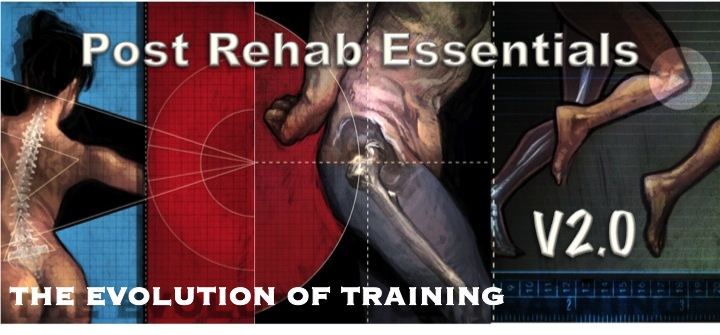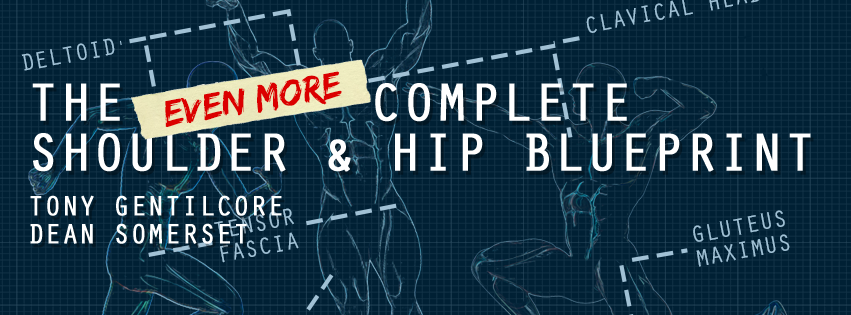Imposter Syndrome and the Fitness Industry
Over this past weekend I was teaching a workshop in Calgary, and had a chance to have some very meaningful conversations with professionals and trainers or very different levels of expertise and experience. It’s cool to think an orthopaedic surgeon is taking a workshop on strength training and corrective exercises, but it’s also awesome to see the lightbulbs going off in a relatively young trainers eyes as they come to a realization of something tangible they can do.

In one conversation, the discussion of imposter syndrome came up. This is when people fear taking action or making choices due to the risk of being labeled a fraud, or of feeling that they are unworthy of making a specific declaration of fact due to not knowing enough or having the experience to do so, or that someone else is better and therefore more qualified than they are.
This is a pretty common thing in the fitness industry from what I’ve seen, and the explosion of social media accessibility seems to make this more prevalent. It’s easy to log on to something like Instagram and see some crazy toned bodies doing amazing things, or massive giants moving more weight than my first house likely weighed, all while making it seem like these accomplishments are just foregone conclusions.
That or you see guys like me doing stupid stuff like this:
The funny thing is that as many people are out there promoting fitness through some form of social channel, it’s harder than ever to be heard. Some companies spend more on the sales tax from their marketing budget per year than I make in the same calendar year, so competing on reach is nearly impossible, and with teams of hundreds of employees compared to little ol’ me and a squat rack, it’s a no brainer who’s going to come out ahead.
It’s also easier to access information from incredibly brilliant academics, professionals, and gifted trainers than ever before since they can all disseminate information relatively easily. For any newer trainer coming in and thinking they’re being put up against someone who has a PhD and massive following and they have to go toe to toe with them can be daunting to say the least.
Except, you don’t.
In Buddhist philosophies, suffering is primarily attributed to craving and clinging to impermanence, be it a feeling or a possession, a desire or an absence. These cravings are rarely ever satisfied, even when obtaining that which the individual was looking to attain, which continues the cycle of suffering. Nirvana is the belief in the absence of cravings, and the lack of suffering.
The belief that you want to compete with others or that others will knock you out of your tenuous position causes suffering, which limits the desire to act and creates the concept of an imposter syndrome.
This belief of competition is an unfortunate one, and in many cases is a construct created entirely in the heads of people looking in from the outside. Speaking from experience and having met and worked directly with some pretty big names in the fitness industry, they never seem to bring in an element of competition, but more are willing to help where ever possible to provide support, promotion or assistance to those willing to stick their necks out and do something good for the industry and those they’re looking to work with. There’s also a never-ending supply of people coming to us for service, which makes the idea of competition seem strange. If there’s no lack of potential impact one person can have, how can someone take away from that?
Another thing to consider is the relative success of the big names out there. My guess is none of them started on top, with any followings, or even an idea of what they were doing. They all started at the bottom, and worked their way up through years of effort and consistency. If they hadn’t started, they would never have accomplished anything.
So then we can discuss where to start when trying to do something. Everything’s already been done before, hasn’t it? Do we really need another guide on how to deadlift correctly, or another “10 tips for growing your biggest biceps?” Probably not, but again, there’s a never-ending stream of people looking to access fitness, perhaps for the first time, who may not be directed to the other names out there and could be using you as their sole input into the world of fitness.
Because of this, if it’s not coming from you, they don’t know about it.
NBC used to have a promotion where they were pushing re-runs of their most popular shows using the tagline “If you haven’t seen it, it’s new to you.” We all probably have movies we haven’t seen that are considered classic required viewing, and the same with books, tv shows, etc. To assume everyone has access to all information in fitness is just not true, otherwise I’d never see any rounded back deadlifts, everyone’s biceps would be massive and shredded, and people would ask me more about mTOR regulation than whether an avocado is a good carb or a bad carb (hint: no.)
When I developed my first product, Post Rehab Essentials, I was teaching a continuing education workshop for trainers within my club, and I invested in a camera and microphone to record the entire thing. I had no idea what I was doing with filming, digital distribution, managing third party payment systems, or marketing or promotions, but I put it out there nonetheless.
When I wrote my first article, I thought people would judge it harshly, call me an idiot, or say I was some charlatan and wind up with a massive negative effect on my business and income, but I wrote it and published it nonetheless.
When I taught my first class, I had no idea how to make Powerpoint slides, and tried to cram as many words on each one as possible, didn’t say anything that wasn’t written on the slides, and had no idea how to speak to a room, but I got up there and did it nonetheless.
When I first started training clients, I had no idea what to do, how to structure a workout, or how I should communicate to get them to a position where they could be successful, but I worked with each person who was in front of me, learned what works and what doesn’t, and adapted to their specific needs in each case nonetheless.
I’ve trained 20,000 training sessions, worked with over 2,000 clients, taught close to 300 workshops or seminars, and released 10 different products, and I’m still trying to figure out what I’m doing.
In each case I feared failure. I feared negative criticisms, and I thought someone would call be a fraud or worse. I thought that each element wasn’t perfect so it would always need to be worked on further before it was put out there for consumption and critique, and the only way to avoid these negatives would be to find ways to delay and postpone until I felt ready.
I realised I would never feel ready. Action requires some form of willingness to not be perfect, and an understanding that things can be changed over time.
Progress requires change, and in many cases that change is something new and unfamiliar. Doing something you have no experience in and then continuing to do it is how you build experience. Doing something you have no knowledge about and continuing to do it is how you build expertise.
If you’re ever worried about receiving negative criticisms, just expect that they will happen. Instead of waiting for it to come and that causing some form of anxiety, expecting to see it and planning accordingly can be a massive stress reliever and make it easier to push forward. One way is to entirely disarm the situation.
Case in point: Omar Isuf. He has an insanely popular Youtube channel, and routinely makes fun of himself, from having no calves to creating parodies of his own name. By owning these, he removes the power others may have over him by using them against him. #teamnocalves.
If you’re worried that everything has been said before and that you’re not bringing anything new to the table, cite the people who have taught you stuff. There’s nothing wrong with writing about squats and referencing Louie Simmons, Mark Bell, Chris Duffin, Tony Bonvechio, or any other person who has put out content, and that bumps up your credibility along the way, since game recognize game. If you have an opinion that you’re not sure has been researched or shared by anyone else, say so, and leave the door open for input as to whether there is research or others who have done similarly.
Be upfront about your skillset and blind spots. I write about stuff I know and use all the time, and don’t tend to go into routes I’m not as familiar with, but still am willing to quote a research study or opinion that’s not my own when ever possible.
There’s a lot of people who read this blog as their only input into the fitness industry and use the info I put out for their own health and wellness, much like I have my go-to sources for things like business development, investments, the weather, or anything else.
Be willing to be someone’s point of contact, and create action.
One thing to consider as well is your clients thoughts when entering the gym for the first time, or the 100th time. It’s a new environment, and they fear being judged harshly just as much as you may for being the trainer. Sure, you may feel at home in your gym, but if you go to an unfamiliar gym, it may be entirely different. This idea of imposter syndrome permeates new exercisers just as much as professionals, so if you’re starting your own fitness experience, remember we’ve all been there, and we’re all rooting for you.
NOTE:
Both Post Rehab Essentials V.2.0 AND Complete Shoulder & Hip Blueprint digital video series are on sale for the rest of this week until December 2nd 2018 at midnight, each for 60% off the regular price. If you want some continuing education credits before the end of the year and to listen to me talk science and stuff, click the links to get your copy now.

Click HERE for Post Rehab Essentials V.2.0

Click HERE For Complete Shoulder & Hip Blueprint
11 Responses to Imposter Syndrome and the Fitness Industry